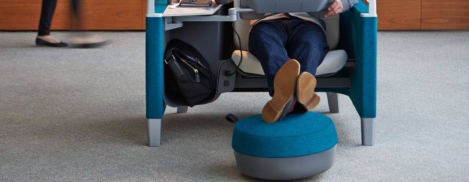July 9, 2015
Growing numbers of workers are ditching their laptops, claims study
 A growing number of European employees are shedding their laptops and instead using tablets as their sole device for work, according to a new study from technology research firm International Data Corporation. The report surveyed 2,000 UK, French and German workers and found that tablets are the only business device used by 40 percent of staff. Not everybody is ditching their keyboard so readily, however, as more and more people are using hybrids as their sole device because they need the functionality of the keyboard. The study found that just under a third of users rely solely on hybrids and the study expects this to rise to over half within a couple of years. This not only reflects the changing way we work but also has profound implications for the way we design and manage the places we work and the tools and systems we use to communicate with each other.
A growing number of European employees are shedding their laptops and instead using tablets as their sole device for work, according to a new study from technology research firm International Data Corporation. The report surveyed 2,000 UK, French and German workers and found that tablets are the only business device used by 40 percent of staff. Not everybody is ditching their keyboard so readily, however, as more and more people are using hybrids as their sole device because they need the functionality of the keyboard. The study found that just under a third of users rely solely on hybrids and the study expects this to rise to over half within a couple of years. This not only reflects the changing way we work but also has profound implications for the way we design and manage the places we work and the tools and systems we use to communicate with each other.




































July 6, 2015
Humans will remain at the heart of the emerging digital workplace
by Maciej Markowski • Comment, Flexible working, Technology, Workplace design
(more…)